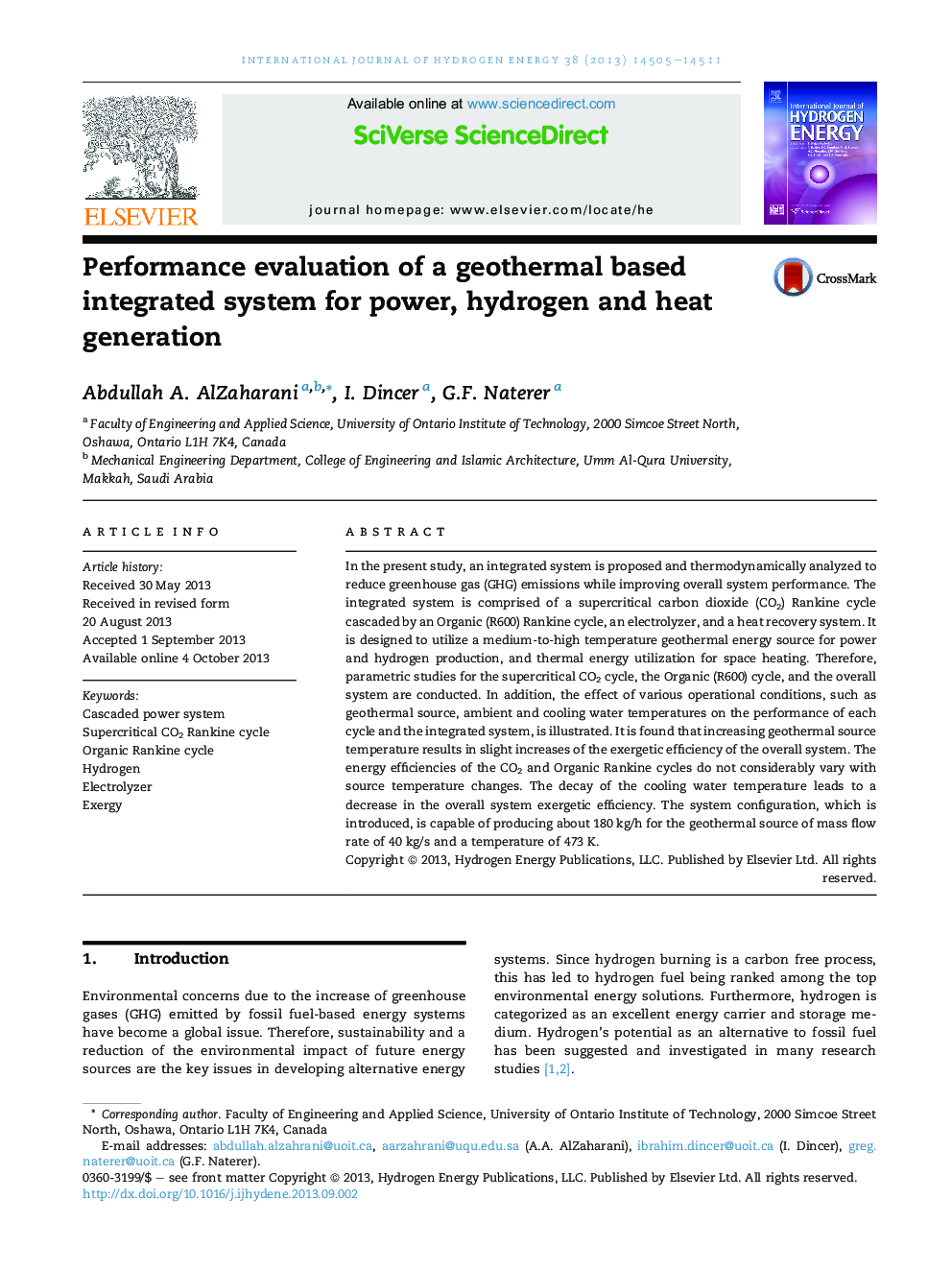| Article ID | Journal | Published Year | Pages | File Type |
|---|---|---|---|---|
| 7721028 | International Journal of Hydrogen Energy | 2013 | 7 Pages |
Abstract
In the present study, an integrated system is proposed and thermodynamically analyzed to reduce greenhouse gas (GHG) emissions while improving overall system performance. The integrated system is comprised of a supercritical carbon dioxide (CO2) Rankine cycle cascaded by an Organic (R600) Rankine cycle, an electrolyzer, and a heat recovery system. It is designed to utilize a medium-to-high temperature geothermal energy source for power and hydrogen production, and thermal energy utilization for space heating. Therefore, parametric studies for the supercritical CO2 cycle, the Organic (R600) cycle, and the overall system are conducted. In addition, the effect of various operational conditions, such as geothermal source, ambient and cooling water temperatures on the performance of each cycle and the integrated system, is illustrated. It is found that increasing geothermal source temperature results in slight increases of the exergetic efficiency of the overall system. The energy efficiencies of the CO2 and Organic Rankine cycles do not considerably vary with source temperature changes. The decay of the cooling water temperature leads to a decrease in the overall system exergetic efficiency. The system configuration, which is introduced, is capable of producing about 180Â kg/h for the geothermal source of mass flow rate of 40Â kg/s and a temperature of 473Â K.
Related Topics
Physical Sciences and Engineering
Chemistry
Electrochemistry
Authors
Abdullah A. AlZaharani, I. Dincer, G.F. Naterer,
